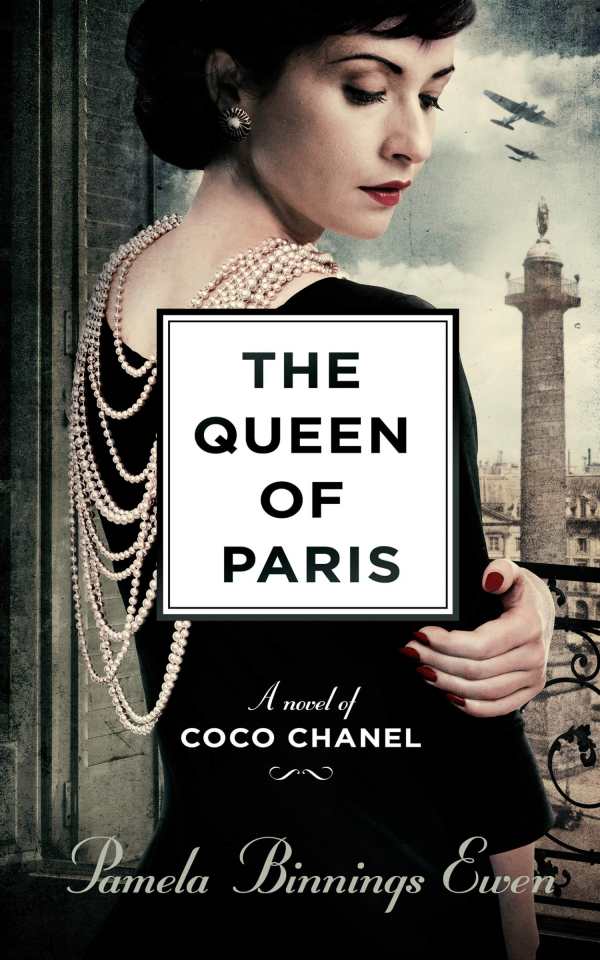The Queen of Paris
A Novel of Coco Chanel
With its pivotal focus on Coco Chanel’s reported World War II work as a Nazi spy, Pamela Binnings Ewen’s novel The Queen of Paris fictionalizes the thoughts and motivations of the French design icon––a complex, controlled woman who rose from poverty to great fame and who guarded her creations and reputation with fierce intensity.
To create a softer impression of Chanel’s often myopic drive for success and self-determination, the book includes flashback passages. Abandoned by her father, Chanel is seen spending her childhood in a convent, her early years joyless and regimented. Later, she becomes the mistress of two wealthy men, but never attains the social standing to marry either; she only finds financial independence through her unique fashion designs. She is forced to pretend that her son, Andre, is her nephew; she uses morphine to escape reality in acts of deliberate indifference.
As the Third Reich invades Paris, Chanel has to deal with the chaos of wartime occupation and the threatened takeover of her No. 5 perfume by a business partner. Her finances are dwindling; her renowned fashion house is temporarily closed. She learns that Andre, who is serving in the French army, is a German prisoner of war.
With the shifting intrigue of covert operations and glimpses of European society—a fascinating backdrop of luxury, fear, duplicity, violence, and harsh moral dilemmas—Chanel’s collaboration with the Germans is written as reprehensible and self-serving. She is positioned as someone who perhaps felt like Paris itself: besieged, defiled, and determined to survive by whatever measures necessary.
Empathetic yet unsparing, The Queen of Paris is an engrossing historical novel that reveals another room in the House of Chanel: beyond the timeless elegance, simplicity, and jasmine-scented perfume was a desperate woman, trapped by a maze of circumstances and her own troubled mind.
Reviewed by
Meg Nola
Disclosure: This article is not an endorsement, but a review. The publisher of this book provided free copies of the book to have their book reviewed by a professional reviewer. No fee was paid by the publisher for this review. Foreword Reviews only recommends books that we love. Foreword Magazine, Inc. is disclosing this in accordance with the Federal Trade Commission’s 16 CFR, Part 255.

